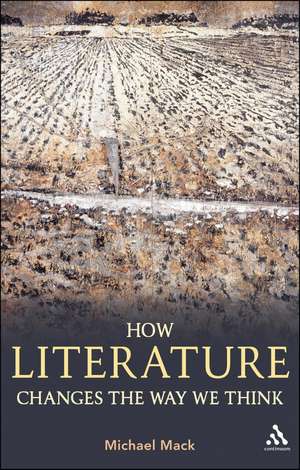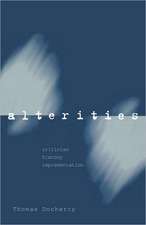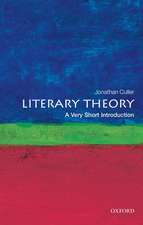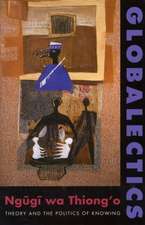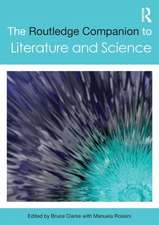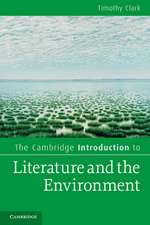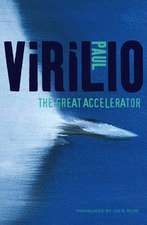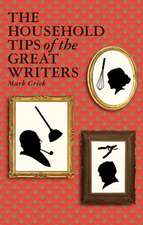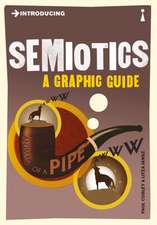How Literature Changes the Way We Think
Autor Dr Michael Macken Limba Engleză Paperback – feb 2012
| Toate formatele și edițiile | Preț | Express |
|---|---|---|
| Paperback (1) | 235.18 lei 43-57 zile | |
| Bloomsbury Publishing – feb 2012 | 235.18 lei 43-57 zile | |
| Hardback (1) | 771.36 lei 43-57 zile | |
| Bloomsbury Publishing – feb 2012 | 771.36 lei 43-57 zile |
Preț: 235.18 lei
Nou
Puncte Express: 353
Preț estimativ în valută:
45.02€ • 48.91$ • 37.84£
45.02€ • 48.91$ • 37.84£
Carte tipărită la comandă
Livrare economică 21 aprilie-05 mai
Preluare comenzi: 021 569.72.76
Specificații
ISBN-13: 9781441119148
ISBN-10: 1441119140
Pagini: 208
Dimensiuni: 138 x 216 x 15 mm
Greutate: 0.24 kg
Editura: Bloomsbury Publishing
Colecția Continuum
Locul publicării:New York, United States
ISBN-10: 1441119140
Pagini: 208
Dimensiuni: 138 x 216 x 15 mm
Greutate: 0.24 kg
Editura: Bloomsbury Publishing
Colecția Continuum
Locul publicării:New York, United States
Caracteristici
Illustrated with close readings of major writers/thinkers/artists across literature, film, and philosophy
Notă biografică
Michael Mack (PhD. Cambridge) is Reader in English Literature and Medical Humanities at Durham University, UK. Formerly he has been a Visiting Professor at Syracuse University, a Fellow at the University of Sydney, and lecturer and research fellow at the University of Chicago. He is the author of Spinoza and the Specters of Modernity (Continuum, 2010), German Idealism and the Jew (University of Chicago Press, 2003), which was shortlisted for The Koret Jewish Book Award 2004, and Anthropology as Memory (Niemeyer, 2001, Conditio Judaica Series).
Cuprins
Acknowledgments / 1. Think Again: An Introduction / 2. Death Again: Reimagining the End / 3. Revisiting Torture and Torment / 4. Revisiting Clones: Change and the Politics of Life / 5. Rethinking Suffering: Self and Substance / 6. The Birth of Literature / 7. The Birth of Politics / 8. Rethinking Birth and Aging: A Conclusion / Bibliography / Index
Recenzii
Michael Mack supplies an answer to the increased doubts about the role of the humanities. His claim is that literature changes the way we see and act; that it is one of the aspects of our cultural life that shapes who we are on the most elemental level. This confrontation with post-modern theory is part of the newly evolving field of the medical humanities and will be a critical contribution to the debates about how and why we teach literature.
This is a subtle, learned, and at the same time radical investigation of the powers of literature. Dr. Mack challenges us to think afresh. Through his analyses, which range from philosophers such as Spinoza and Benjamin to novelists such as Ishiguru and Doctorow, he demonstrates the new social, ethical and emotional possibilities opened up by the activity of literature.
In providing an ethical response to the issues that face us, Dr. Mack aptly underlines the important contributions that the different university disciplines comprising the humanities may be called upon to make. His brilliant book brings to light the disruptive potential of literature in challenging stereotypical representations of social minorities and also in questioning the typical social models and roles that are most immediately associated with aging and death, with sickness and impurity, and with the biotechnical issues that they involve.
Reviewed in the Times Higher Education Supplement.
Everything changes the way we think - it's just that we're not always aware of it. So it's right that Michael Mack, a Reader in English Literature and Medical Humanities at Durham University, should place the emphasis on the 'how' when he argues that literature and the arts and humanities in general can help us 'change harmful practices within politics, religion, medicine and society at large'. According to Mack, who references everything from the TV series Mad Men to the philosophy of Heidegger, art is 'disruptive to the degree of interrupting itself' - thus its power to challenge stereotyping and other potentially harmful habitual behaviour. Which is maybe why many corporations and governments prefer to have it reduced to innocuous, middlebrow pap. Another pineapple juice, anyone?
The book is a major contribution to the field connecting ethics with aesthetics, marking new trends of inquiry. It will definitely be of 3 benefit to thinkers, scholars, and students of literary theory, criticism, philosophy, and cultural theory.
The central thesis of Michael Mack's bold and timely defence of the arts and humanities, How Literature Changes the Way We Think, is that literature has a 'unique and underappreciated capacity to make us aware of how we can change accustomed forms of perception and action' (p. 1). Mack's apologia for literature is a refreshing alternative to contemporary arguments for the social and political relevance of art's representational work.
How Literature Changes the Way We Think comprises interesting, sometimes fascinating inroads toward a diagnosis of the problems of representation, and the effort to describe a theory avoiding these pitfalls seems a helpful project.
This is a subtle, learned, and at the same time radical investigation of the powers of literature. Dr. Mack challenges us to think afresh. Through his analyses, which range from philosophers such as Spinoza and Benjamin to novelists such as Ishiguru and Doctorow, he demonstrates the new social, ethical and emotional possibilities opened up by the activity of literature.
In providing an ethical response to the issues that face us, Dr. Mack aptly underlines the important contributions that the different university disciplines comprising the humanities may be called upon to make. His brilliant book brings to light the disruptive potential of literature in challenging stereotypical representations of social minorities and also in questioning the typical social models and roles that are most immediately associated with aging and death, with sickness and impurity, and with the biotechnical issues that they involve.
Reviewed in the Times Higher Education Supplement.
Everything changes the way we think - it's just that we're not always aware of it. So it's right that Michael Mack, a Reader in English Literature and Medical Humanities at Durham University, should place the emphasis on the 'how' when he argues that literature and the arts and humanities in general can help us 'change harmful practices within politics, religion, medicine and society at large'. According to Mack, who references everything from the TV series Mad Men to the philosophy of Heidegger, art is 'disruptive to the degree of interrupting itself' - thus its power to challenge stereotyping and other potentially harmful habitual behaviour. Which is maybe why many corporations and governments prefer to have it reduced to innocuous, middlebrow pap. Another pineapple juice, anyone?
The book is a major contribution to the field connecting ethics with aesthetics, marking new trends of inquiry. It will definitely be of 3 benefit to thinkers, scholars, and students of literary theory, criticism, philosophy, and cultural theory.
The central thesis of Michael Mack's bold and timely defence of the arts and humanities, How Literature Changes the Way We Think, is that literature has a 'unique and underappreciated capacity to make us aware of how we can change accustomed forms of perception and action' (p. 1). Mack's apologia for literature is a refreshing alternative to contemporary arguments for the social and political relevance of art's representational work.
How Literature Changes the Way We Think comprises interesting, sometimes fascinating inroads toward a diagnosis of the problems of representation, and the effort to describe a theory avoiding these pitfalls seems a helpful project.
Descriere
Descriere de la o altă ediție sau format:
Argues for the importance, and societal impact, of the study of the arts and humanities, and of literature in particular.
Argues for the importance, and societal impact, of the study of the arts and humanities, and of literature in particular.
